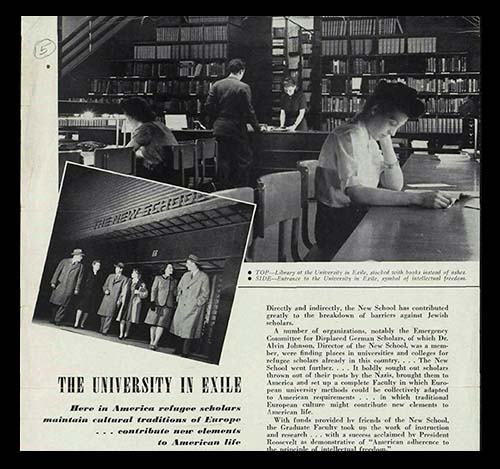
On Scholars and Exile
To be part of The New School is itself a process of continual education. And these last several months—unprecedented as they have been—have accelerated my education. As I think about leading The New School for the future, it has also been a privilege to learn more and more about its remarkable history.
Last week I welcomed a meeting of advisors to the New University in Exile Consortium. The consortium, led by our very own indefatigable Professor Arien Mack, brings together a group of universities committed to supporting and connecting scholars exiled from their home countries because of political oppression, national crises, or personal threats. The consortium was launched at The New School in 2018, but it actually hearkens back to one of the most significant chapters in The New School’s history, the period in the 1930s known as the University in Exile. This was a time when our university worked to provide a safe academic haven for many scholars fleeing the rise of Nazism and authoritarianism in Europe.
That this work began in the 1930s and has been reinvigorated and goes on today is a reminder of both how much and how little the world has changed. There is still, more than ever, the need for rescue, advocacy, support, and protection of the basic human rights of inquiry and expression. We build strength to do this work by partnering with like-minded organizations and university partners.
Shortly before the New University in Exile Consortium meeting, I received a letter and a beautiful publication from Dr. Allan Goodman, President and CEO of the Institute for International Education. IIE is marking its 100th year of supporting displaced scholars. Among the IIE’s many effective and lauded initiatives is the IIE Scholar Rescue Fund. The New School has enjoyed a long partnership with IIE-SRF, and has been a leading host campus for SRF-sponsored scholars.
I’m proud to be part of a university that has been a beacon of hope for academics around the world whose very practice of scholarship in intellectual inquiry has been at risk, and am grateful for partnership and leadership in this important work.